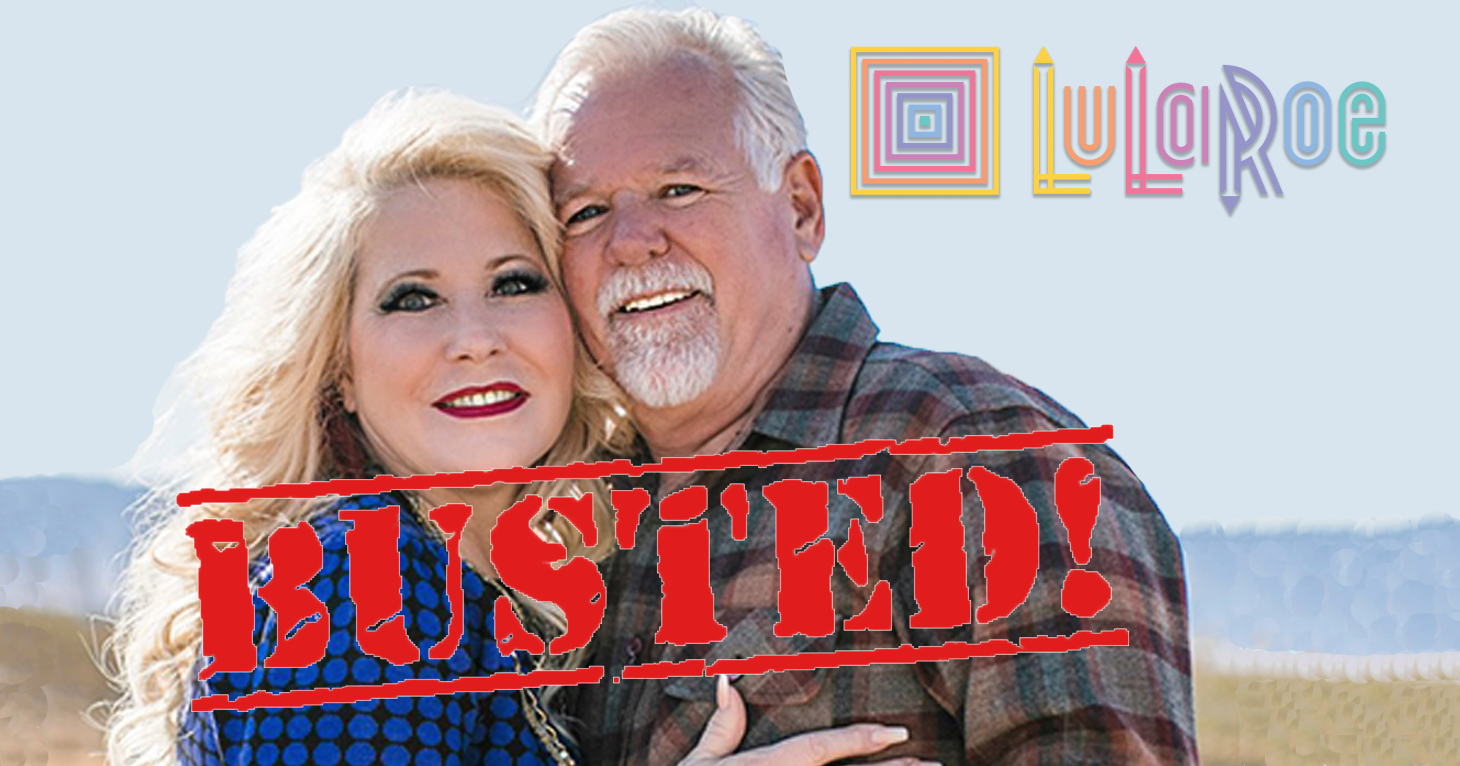
The Cost of Doing Business
Comparing the amount companies agree to pay to settle deceptive marketing charges with their annual revenue.
Latest class action slams LLR's "bait-and-switch" return policy.
|
UPDATE 1/10/19: Early in 2018, plaintiffs amended their complaint to add pyramid scheme allegations and five named plaintiffs (Atkinson, Berry, Haskett, Patton, and Rocke). A few months later, the Lemberg case was stayed pending arbitration with a federal judge concluding that the arbitration provisions in the company’s retailer agreements are valid and enforceable.
LuLaRoe (LLR), a California-based Multilevel Marketing – a way of distributing products or services in which the distributors earn income from their own retail sales and from retail sales made by their direct and indirect recruits. clothing company, was hit with a class-action lawsuit last Friday in California federal court. The six-count complaint claims damages in excess of $5 million and seeks to represent a nationwide class of distributors who either attempted (unsuccessfully) to return inventory or purchased inventory during the five-and-a-half month period in which LLR had a “100% Buy Back” policy. The complaint claims unjust enrichment, breach of contract, and deprivation of distributors’ investments, among other things.
In April, LLR announced that distributors who quit their LLR business could return their inventory for a 100 percent buyback, which included free shipping, according to the complaint. It appears that many distributors took LLR up on its offer and attempted to return their inventory, but, from social media accounts, the return process became a nightmare for many. And then in mid-September LLR changed its buy-back policy.
The complaint states that (emphasis in original):
overnight on September 13, 2017, LuLaRoe reneged on its end of the bargain. Instead of honoring its 100% buyback and free shipping agreement, LuLaRoe is not providing f[r]ee shipping and is honoring at most a 90% refund and even then it comes with numerous exceptions, thereby cheating Plaintiffs and the Class out of thousands of dollars.
By way of example, the four named representatives of the class, Stella Lemberg of New Jersey, Jeni Laurence and Amandra Bluder of California, and Carissa Stuckart of Oregon, claim that they relied on LLR’s 100 percent buy-back policy to recruit distributors, purchase additional inventory, and ultimately attempt to return (unsuccessfully) thousands of dollars worth of inventory. Lemberg claims she has $20,000 worth of inventory in her possession that she has been unable to return, Bluder reports approximately $14,000 worth of inventory, Laurence $12,000 and Stuckart $7,000.
The complaint goes on to describe waiting weeks for LLR email responses, no response from LLR after leaving messages with the company’s “call back feature,” and spending hours on hold with LLR only to be disconnected. The complaint also highlights an alleged LLR policy that deprives distributors of their investment:
Consultants are prevented from returning inventory and/or after they have returned their inventory, LuLaRoe self-determines that some items are non-refundable, with no appeal process or other recourse for the Consultants. Once LuLaRoe decides that an item(s) are non-[re]fundable, whether it is because of the new one-year policy or for some other reason, LuLaRoe refuses to return the items to the Consultants. Rather LuLaRoe donates those items of clothing, and the Consultants are deprived of both the product and any compensation for the product.
Several other class-action lawsuits have been filed against LuLaRoe this year. Two cases, an Oregon state court case and a California federal case, focus on LLR defective leggings; another case filed in federal court in Pennsylvania alleges LLR improperly collected sales tax for purchases in states that do not have sales tax on clothing; and a case brought in May in California federal court alleges problems with LLR’s return policy when customers attempt to return defective leggings. Specifically, that complaint states:
Due to Defendants’ business practices, . . . consumers have often found themselves unable to return their leggings for a refund or replacement, and in circumstances where Defendants’ deign to respond at all to consumer complaints, they often provide no remedies for affected consumers, typically directing them to the Consultant from whom they originally purchased the leggings. However, Defendants’ historically have failed to provide refunds to Consultants, and have made exchanges challenging, even going so far as recommending that Consultants learn how to sew in order to repair and resell defective clothing. This, among other policies, results in Consultants being unwilling to accept returns or exchanges.
Not to be outdone, LLR recently filed a petition in Illinois state court to compel a former distributor turned anti-LLR blogger, who writes under the pseudonym, MommyGyver, to identify her sources so that LLR can sue distributors that are making negative comments about the company.
When TINA.org reached out to LLR for comment about this latest lawsuit, the company stated:
We believe these allegations are wholly without merit and intend to vigorously defend against them. LuLaRoe will in good faith continue to abide by the terms of the Policies and Procedures – accepted and binding upon every Independent Fashion Retailer executing the LuLaRoe Independent Consultant Application and Agreement – which includes mediation and legal arbitration as the appropriate forums for addressing any disputes about the Retailer cancellation, return and refund process.
For more on LuLaRoe, click here.
Comparing the amount companies agree to pay to settle deceptive marketing charges with their annual revenue.
TINA.org alerts Washington AG’s office to deceptive income claims and more.
Settlement avoids a trial that had been scheduled to begin on Feb 16.


